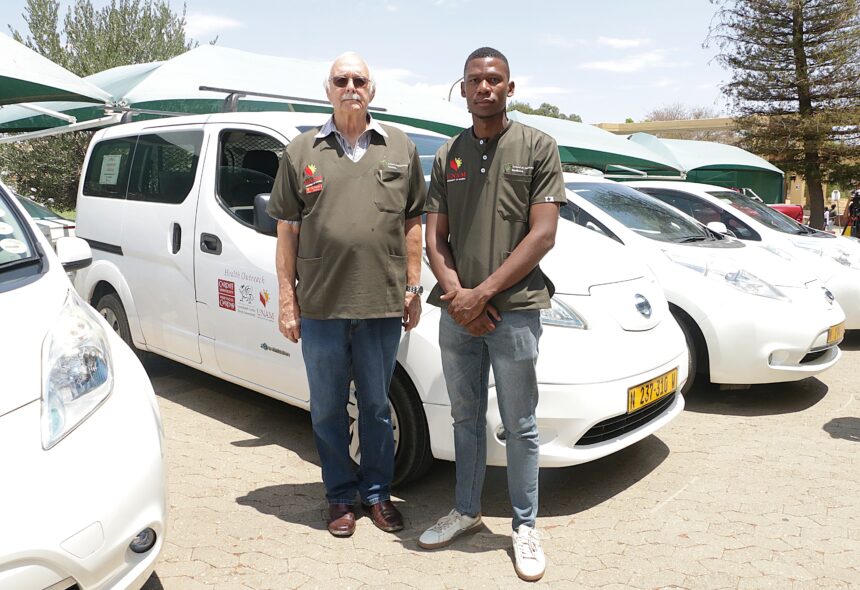Iuze Mukube
In its continued commitment to sustainability and innovation in transportation, the University of Namibia has acquired five electric vehicles (EVs) worth N$1.5 million. The formal handover of the four electric sedans and one EV van took place at the university’s main campus yesterday.
This significant move is a critical goal of the university towards lowering its carbon footprint in the country and setting the standards of transitioning to greener and more cost-effective mobility solutions.
Yesterday’s donation of EVs was made possible by sponsorship from Cardiff University. Unam vice chancellor, Kenneth Matengu, expressed his gratitude, stating the vehicles support the university’s strategy on climate change and mitigation by decreasing and reducing the carbon emission footprint at the institution.
He noted the university will likely use fewer petrol and diesel vehicles going forward thanks to the five cutting-edge electric vehicles. He urged the university to embrace the EVs, saying this is the future.
Spearheading the EV project was Judith Hall, Unam’s executive dean of the faculty of health sciences and veterinary medicine. She said the vehicles were acquired through a grant she initiated at Cardiff University and the Welsh government.
Hall underlined the vehicles’ considerable saving on costs compared to normal vehicles using petrol or diesel. That the acquired EVs are allocated to different departments in the health faculties, and to campuses such as Hage Geingob, and the veterinary department at the main campus.
Additionally, the EVs will be used for transporting staff, students, goods and animals, while the van is set to transport cages for small animals.
Representing Electric Vehicles Namibia cc, Johannes Ndjamba, said the vehicles consist of the Nissan Leaf brand, which is a fully electric car, meaning it just works solely on a battery.
He said the bigger the battery, the longer the distance covered.
“So, the ones that you see here have a 24 kilowatt battery, which means on a full charge, you can drive between 100 to 120 kilometres. And, the car takes two types of charging, namely the slow charge and the quick charge options,” said Ndjamba.
He said slow-charging entails a household charger, as it can be plugged into a normal outlet socket at home.
“It’s a single phase, but charging time is much longer compared to the fast charger. The charging times on the slow charger is between five to six hours to charge fully,” he
said.
However, on the fast charger, a full charge can be achieved in 45 minutes to one hour but regardless of the time, the electricity used is about N$50.
Ndjamba continued that the retail price for the EV Nissan Leafs is between N$150 000 to N$320 000 for the smaller type, while the newer EVs retail for around N$450 000. These models can run for up to 380 kilometres on a full charge.



